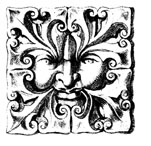
The Content of Their Character — Forty Years Later
GUEST COLUMN
I have a dream that my four children will one day live in a nation where they will not be judged by the color of their skin but by the content of their character.
— The Rev. Dr. Martin Luther King Jr., 1963.
Don’t be judgmental.
— Liberal teachers, professors, pundits,and clergy, 2004.
The word “judgmental,” in the sense of being critical of someone’s actions or character, dates only from the 1960s. What does using this word in this sense reveal about our thinking? How does it affect our actions?
Specifically, how can we follow Dr. King’s advice, and at the same time believe it is wrong to be “judgmental”? I don’t think we can.
For a generation, we have been discarding criteria by which to judge a person’s character. We removed the Ten Commandments from schools and courthouses. We tossed out the Bible and all that goes with it. We threw away the rulebook, so we are in no position to complain when someone breaks the rules. What rules? He may have broken your rules, but he didn’t break his rules — and his rules are as valid as anyone’s, aren’t they?
But if by chance we still have a complaint, where do we direct it? We have done our best to remove God from public life. In addition to ripping up the rulebook, we turned our backs on the Referee. Instead, we have a noisy cheering section that keeps chanting, “Don’t be judgmental — who are we to judge?” Who, indeed? After all, we’re not perfect, are we?
You May Also Enjoy
The Chicago Great Books list…illustrates rather well the tension between acculturation and the love of…
Scientific materialism has become the foundation for much of American politics and culture; hence the efforts to turn February 12 into "Darwin Day" in schools.
A move to New Mexico would eventually lead us into the Catholic Church, thanks to very devout Christian Navajos and to the relentless leading of the Holy Spirit.

